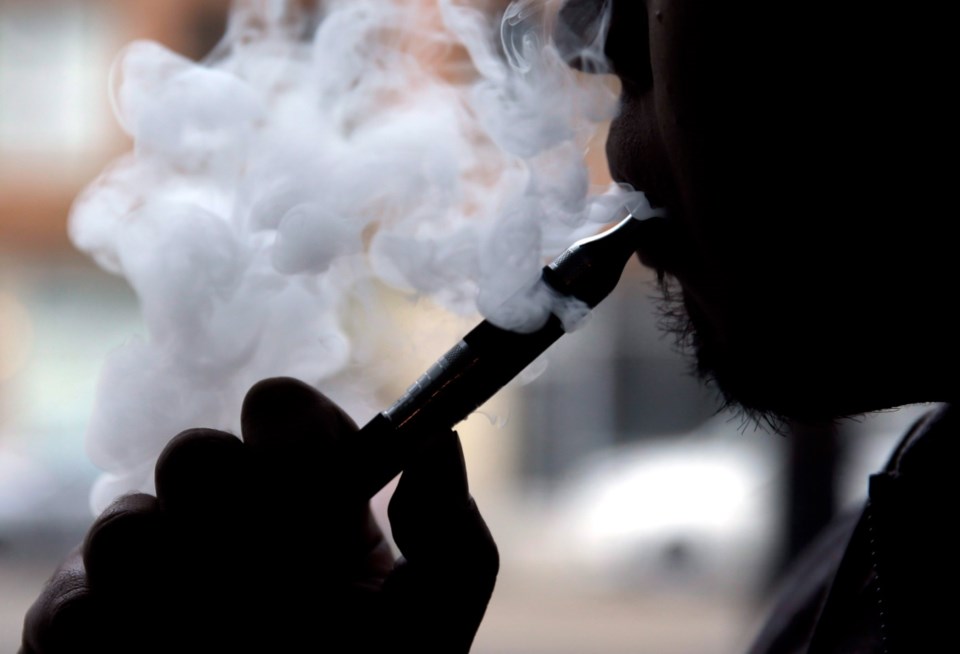The B.C. government moved Thursday to protect young people from the growing use of e-cigarettes by treating the devices the same as tobacco.
Health Minister Terry Lake introduced amendments to the Tobacco Control Act that prohibit the sale of e-cigarettes to anyone under 19 and ban their use on school grounds.
The legislation also makes it illegal to smoke e-cigarettes — known as “vaping” — in workplaces, bars, restaurants or other indoor public spaces.
Lake said regulations will ensure that no retail displays for e-cigarettes target youth and that no retail advertising is shown where young people can see it.
He said it will take time to develop regulations and work with industry, but he hopes to have the new law in place “within a year.”
“British Columbia has the lowest smoking rate in Canada, but we are now faced with a new product in the market that is largely unknown,” Lake told the B.C. legislature.
“Since becoming available, e-cigarettes have become popular with many British Columbians, particularly young people. The evidence as to their benefits and harms has yet to be established.”
B.C. joins Ontario and Nova Scotia with legislation that takes aim at electronic or e-cigarettes, which have a battery that heats a liquid-filled chamber, producing a vapour that is then inhaled. The liquids come in flavours and may contain nicotine in a range of concentrations.
“Because e-cigarettes are so unregulated, we don’t know what’s in them,” Lake said. “We don’t know what the potential health effects are for young people.”
The Canadian Cancer Society and the Canadian Paediatric Society applauded the B.C. government for cracking down on the products.
“We know as a matter of fact that 15 to 20 per cent of our youth between the ages of 15 to 19 years have actually tried e-cigarettes and these are alarming stats,” said Khairun Jivani, director of health promotion for the cancer society.
She said studies do show the potential benefits of e-cigarettes in helping people quit smoking, but she said more evidence of that is needed.
“Having said that, I think it is a no-brainer that e-cigarettes should not be used by youth due to the potential of it leading into smoking behaviour,” she said.
Dr. Richard Stanwick, past president of the pediatric society and chief medical officer with Island Health, warns in a society position paper released today that e-cigarettes produce “substantial amounts of fine particulate matter, toxins and heavy metals at levels that can exceed those observed for conventional cigarettes.” He also said the use of nicotine in some of the products could lead to addiction.
“It has a tremendous potential to basically create a whole new generation of individuals dependent on nicotine,” he said.
NDP health critic Judy Darcy expressed support for the legislation, but slammed Lake for failing to impose a ban on flavoured tobacco products that taste sweet and directly target children and youth.
“These products look like cosmetics,” she said. “They look like lipstick. They look like tins of candy.
“So they are very deliberately marketed to young people as if somehow they are not harmful products and they are. And the minister failed to take action on that.”
Lake said federal Health Minister Rona Ambrose is better positioned to deal with the manufacture of flavoured cigarettes and cigars.
“She is moving forward with regulations to ban the use of those flavours that are appealing to young people,” he said. “She assures me that that’s being done.”



